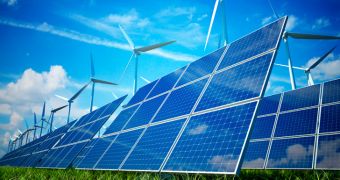This past April 13, the Intergovernmental Panel on Climate Change released a new report saying that, given the proper measures, limiting global warming to 2 degrees Celsius (3.6 degrees Celsius) when compared to pre-industrial era levels would still be possible.
The researchers who pieced together this report explain that, according to their investigations into the matter at hand, what these proper measures must first and foremost boil down to is limiting greenhouse gas emissions by curbing the use of dirty fuels and promoting renewables.
Environmental group the World Wildlife Fund, whose members and supporters have long been badmouthing climate change and global warming, was quick to react to this report and say that the Panel was right when emphasizing the need to cut greenhouse gas emissions.
However, there is one thing that this green-oriented organization and the Intergovernmental Panel on Climate Change do not quite agree on, and this thing is exactly how much money must be spent on developing the global clean energy industry in the years to come.
On its website, the World Wildlife Fund explains that, despite the Panel's recommendation that investments in renewables be tripled or quadrupled in the years to come, the best thing to do would be to ensure that the majority of funds made available to the energy sector in the near future are spent on green sources.
“The report, agreed by the Intergovernmental Panel on Climate Change (IPCC), says that the world should triple or quadruple investments in clean energy solutions. WWF goes further, saying that the overwhelming majority of new investments should be made in renewable energy and energy efficiency,” the organization writes.
Together with the Panel, the World Wildlife Fund argues that the world can afford the cost associated with promoting the use of clean energy sources. It cannot, however, handle the cost of climate change and global warming. Otherwise put, mitigation comes with a much smaller price tag when compared to inaction.
“Renewable energy can no longer be considered a niche market. Renewables must – and should – eventually take the full share of the global energy market within the next few decades,” Dr. Stephan Singer, WWF director of global energy policy, said in a statement.
“The longer we delay on tackling climate change, the harder the challenge becomes. Transforming the world’s energy systems is now an urgent necessity if we are to avoid the dangerous impacts of global warming,” added the leader of WWF’s Global Climate & Energy Initiative, Samantha Smith.

 14 DAY TRIAL //
14 DAY TRIAL //